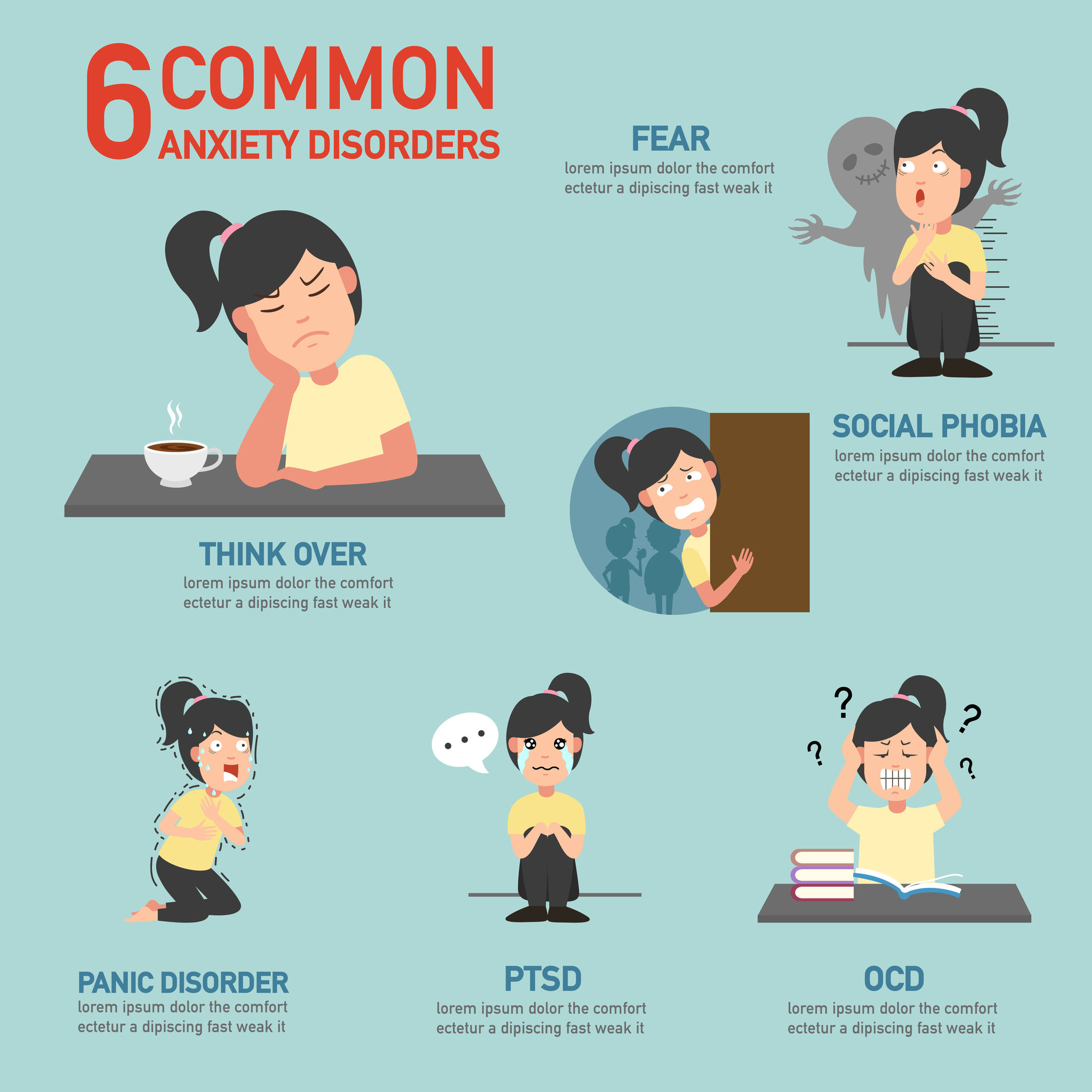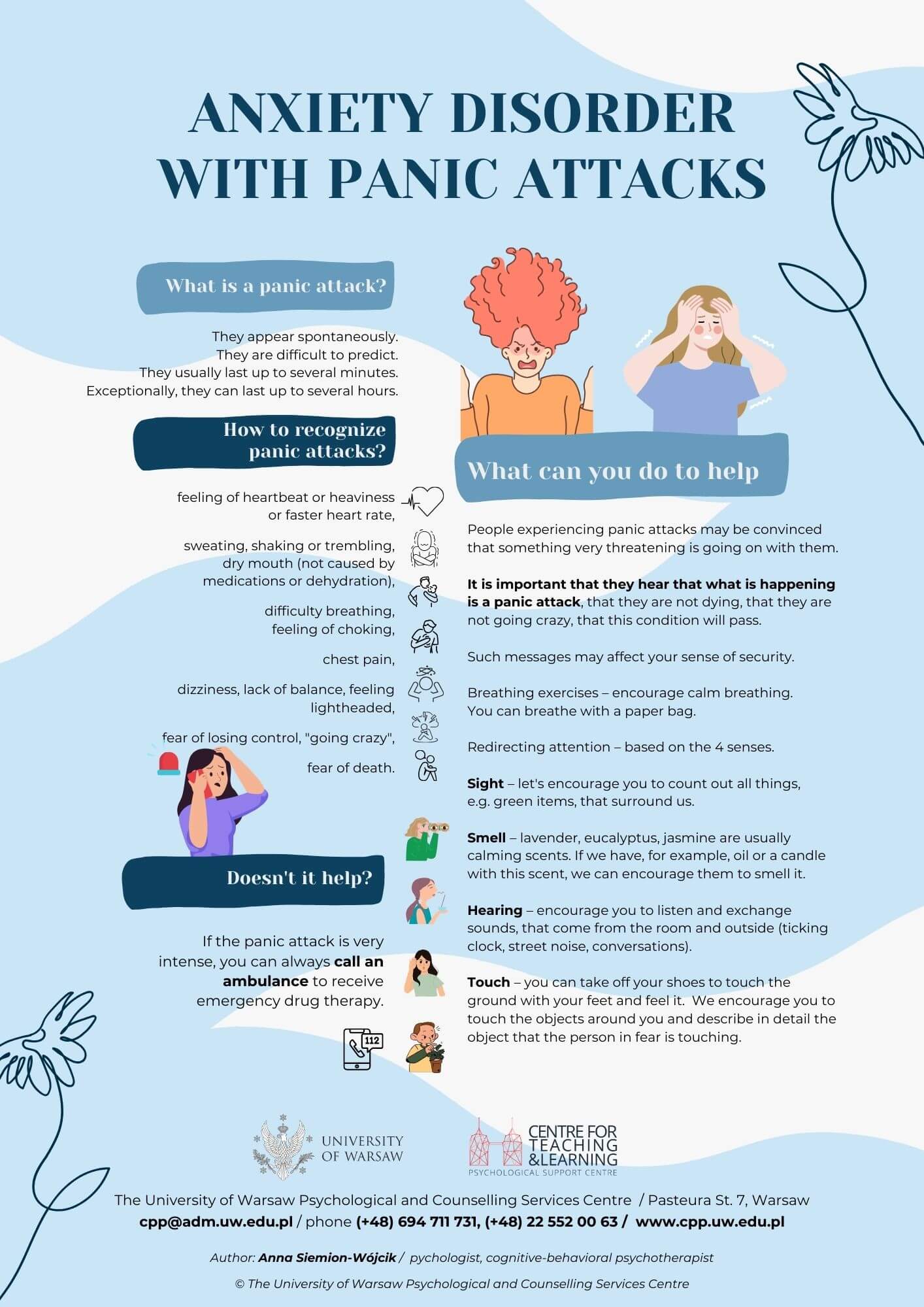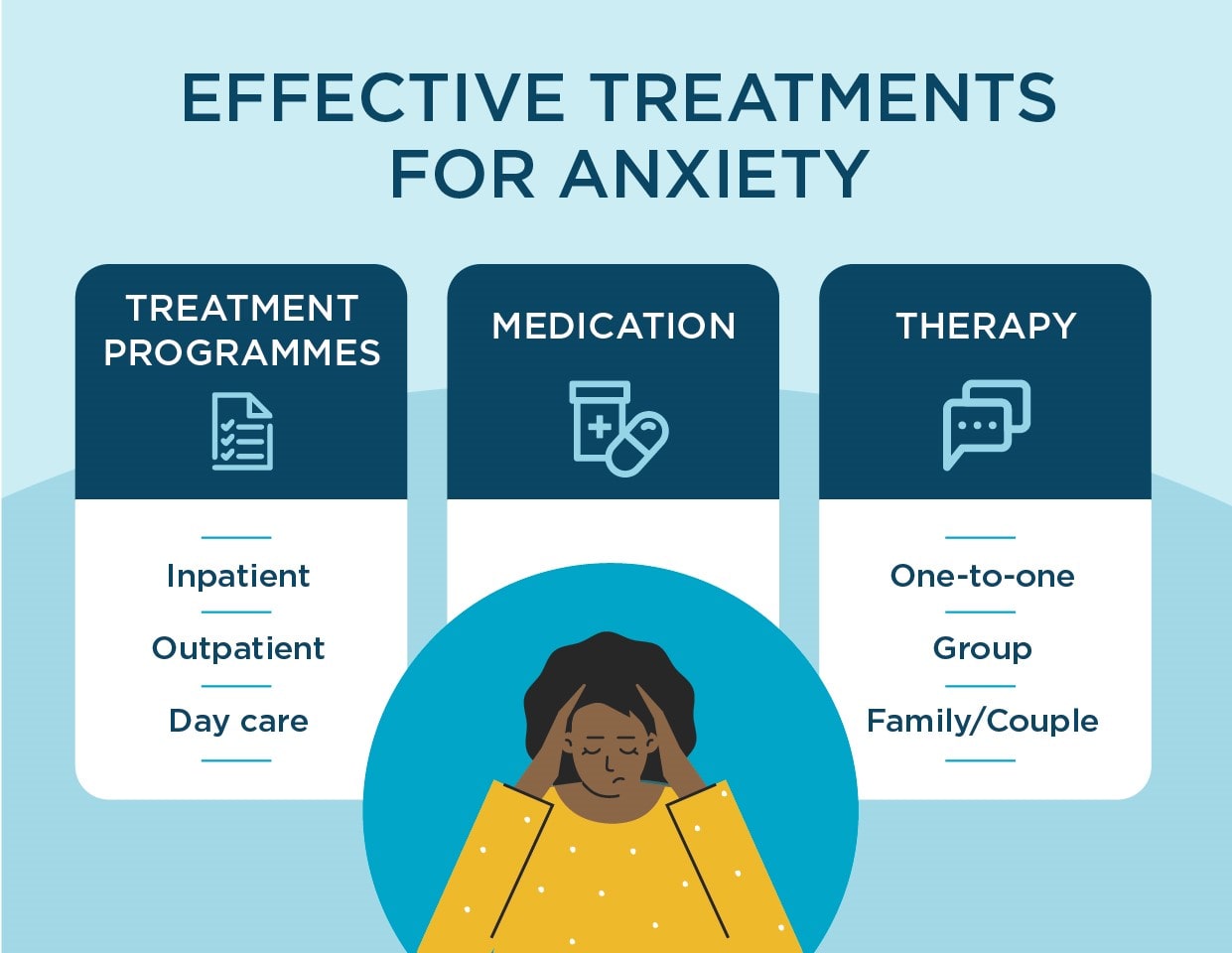Scientifically supported counselling for anxiety with empathetic guidance
Scientifically supported counselling for anxiety with empathetic guidance
Blog Article
Discovering Different Techniques in Coaching for Anxiety Condition for Enduring Adjustment
When taking on anxiety disorders, it's necessary to explore a variety of counseling methods. Each method supplies distinct understandings and tools to help you manage your signs successfully. You could find that incorporating strategies can generate the very best outcomes. Understanding the subtleties of these approaches is essential to fostering long lasting change. What if the best combination could release a brand-new degree of emotional health for you?
Recognizing Anxiety Problems: A Quick Review
Stress and anxiety conditions, which affect millions of individuals worldwide, can significantly impact life. You may experience overwhelming sensations of anxiety or stress that seem uncontrollable. These sensations can bring about physical signs like a racing heart, sweating, and even wooziness. Usual kinds of anxiousness problems consist of generalised anxiousness condition, panic attack, and social anxiety condition. Each has one-of-a-kind indicators, however they all share a tendency to disrupt your regular and relationships.Understanding the origin of your anxiety is crucial. It may originate from genes, mind chemistry, or life experiences. Acknowledging your triggers can help you handle your reactions much better. It is necessary to keep in mind that you're not the only one in this battle. Lots of people deal with similar obstacles, and seeking assistance is a strong step toward sensation better. By discovering stress and anxiety problems, you're already on the path to understanding and handling your problem extra successfully.
Cognitive-Behavioral Therapy: Challenging Unfavorable Idea Patterns
In Cognitive-Behavioral Therapy, you'll begin by recognizing the negative idea triggers that contribute to your anxiousness. Once you acknowledge these ideas, you'll work with replacing them with more positive options. With each other, you'll build efficient coping approaches to aid manage your anxiety in daily scenarios.
Recognizing Negative Thought Triggers

When you come across minutes of distress, identifying the specific triggers behind your negative thoughts can be necessary in managing anxiety. Begin by focusing on situations that prompt sensations of worry or worry. Is it a crowded room, an approaching deadline, or a conversation with certain people? Take down these circumstances in a journal. This will certainly assist you determine patterns in your thinking. Notice physical experiences that accompany your unfavorable thoughts, like an auto racing heart or rigidity in your breast. By identifying these triggers, you gain understanding right into what's fueling your anxiety. Understanding these links is the very first step in testing those ideas and eventually gaining back control over your emotional responses.
Replacing Thoughts With Positives
Challenging unfavorable idea patterns is an essential action in transforming your mindset and reducing stress and anxiety. You might typically locate yourself entraped in cycles of insecurity or devastating thinking. As opposed to letting these ideas dictate your sensations, technique replacing them with practical alternatives or positive affirmations. For example, when you think, "I can't handle this," change it to, "I can take care of difficulties one action at once." This basic adjustment can significantly affect your emotion. Frequently recognizing and responding to these unfavorable ideas helps create a much healthier internal dialogue. Keep in mind, it takes time and effort, however consistently practicing this technique can lead to long lasting modification, equipping you to face anxiousness with renewed confidence and strength.
Building Coping Methods With Each Other
Changing adverse ideas is just the start of taking care of anxiousness effectively. To create long lasting modification, you require to develop coping methods that equip you. Cognitive-Behavioral Treatment (CBT) aids you recognize and test those unhelpful thought patterns. Together, you and your therapist can discover exactly how these thoughts effect your sensations and behaviors.Start by creating sensible strategies, like journaling or mindfulness workouts, that permit you to face stress and anxiety head-on. When you face your fears progressively, you'll find out to react differently.

Mindfulness and Acceptance-Based Approaches: Cultivating Present-Moment Recognition
As you navigate the intricacies of stress and anxiety, including mindfulness and acceptance-based methods can considerably boost your capacity to grow present-moment awareness. By concentrating on the below and now, you'll find that you can observe your ideas and feelings without judgment (Counseling services for anxiety). This technique helps you recognize your anxiety without feeling overwhelmed by it.Engaging in mindfulness exercises, such as deep breathing, body scans, or assisted meditations, enables you to ground on your own in your present experience. Acceptance-based approaches encourage you to welcome your emotions instead than battle against them. They lose their power over you.Incorporating these techniques into your day-to-day routine can transform exactly how you react to stress and anxiety when you accept your feelings. You'll create resilience and discover to browse demanding circumstances with higher ease. Inevitably, cultivating present-moment awareness lays the structure for long lasting modification, equipping you to lead a more satisfying life
Exposure Therapy: Facing Concerns Progressively
Direct exposure treatment aids you confront your fears in a gradual method, making it less frustrating. You'll discover strategies to face anxiety-provoking situations detailed, while also building coping techniques to manage your responses. This technique equips you to take control and minimize stress and anxiety gradually.
Progressive Exposure Techniques

When facing anxiousness, slowly confronting your anxieties can be an effective method to restore control. This strategy, referred to as progressive exposure, includes slowly revealing yourself to the situations or things that activate your anxiety. Beginning with much less challenging scenarios and progressively work your way as much as more tough ones. If you're scared of public talking, you might begin by speaking in front of a mirror, then advance to sharing ideas with a good friend, and eventually attend to a small group. Each action aids desensitize you to the worry, developing your self-confidence in time. Bear in get more info mind, it's important to rate yourself and celebrate little triumphes as you move with this procedure, enhancing your ability to handle anxiousness efficiently.
Structure Coping Approaches
Structure reliable coping methods is vital for managing stress and anxiety, specifically as you confront your concerns gradually - Counseling services for anxiety. One powerful technique is direct exposure therapy, where you start by encountering your worries in a controlled way. Begin with much less frightening circumstances and gradually function your means up to even more tough scenarios. This gradual exposure assists desensitize you to stress and anxiety activates, making them much less overwhelming.Incorporate leisure strategies, such as deep breathing or mindfulness, to relax your mind during exposure. Track your progress, celebrating little triumphes along the method to improve your self-confidence. Bear in mind, it's all right to take your time; the objective isn't excellence yet constant improvement. By developing these techniques, you'll encourage yourself to browse anxiety and embrace life more fully
Psychodynamic Treatment: Revealing Source of Anxiety
Psychodynamic treatment checks out the unconscious mind, revealing the origin of your stress and anxiety. By examining your ideas, feelings, and past experiences, this strategy assists you uncover underlying conflicts and unsolved problems that may add to your present anxiety. You'll deal with a therapist to investigate childhood experiences, partnerships, and emotional patterns that form your actions today.As you acquire insight right into these deeper layers of your subconscious, you'll start to recognize exactly how past occasions influence your existing behavior. This understanding can bring about catharsis, enabling you to refine emotions you could have suppressed.Through the restorative relationship, you can likewise identify defense reaction that might have established over time, supplying a clearer path to transform. Eventually, psychodynamic therapy outfits you with the devices to address your anxiousness at its core, advertising long lasting transformation in your psychological well-being.
Integrative and Holistic Strategies: Combining Techniques for Greater Efficiency
Integrating numerous therapeutic strategies can improve your journey towards managing stress and anxiety a lot more successfully. By incorporating aspects from cognitive-behavioral treatment, mindfulness practices, and all natural techniques, you can develop a customized approach that addresses your distinct requirements. For example, you might use cognitive-behavioral methods to test adverse idea patterns while incorporating mindfulness exercises to ground yourself in the here and now moment.Additionally, checking out all natural practices such as yoga exercise or reflection can promote relaxation and minimize anxiety signs. This blend enables you to create greater self-awareness and resilience.Experimenting with these varied techniques can help you uncover what resonates most with you. Bear in mind, it's regarding discovering a harmony that functions, rather than staying with a single method. This integrative technique not only uses instant alleviation yet also fosters long-term abilities for taking care of anxiousness, empowering you to reclaim control over your life.
The Role of Support Systems: Structure Strength With Connection
While it might seem that managing anxiety is a singular journey, having a solid assistance system can play a necessary duty in your durability. Bordering yourself with compassionate friends, family, or assistance groups develops a risk-free space where you can honestly share your feelings and experiences. When you get in touch with others, you advise yourself that you're not alone in this struggle.These connections provide encouragement and can give functional coping strategies that have actually helped others. It's additionally a chance to obtain point of view; pals can help you see scenarios in a different way, decreasing sensations of isolation.Moreover, emotional assistance promotes a sense of belonging, which can greatly reduce anxiety signs. By leaning on your support group, you can develop durability and take on obstacles better. Keep in mind, connecting for help signifies strength, and it can make all the distinction in your trip toward managing anxiousness.
Regularly Asked Inquiries
What Are the Usual Signs And Symptoms of Anxiousness Problems?
You may experience uneasyness, exhaustion, problem focusing, impatience, muscular tissue stress, and sleep disruptions. Physical signs can consist of rapid heart beat, sweating, and shivering. Identifying these indicators early can aid you seek suitable support and therapy.
How Much Time Does Therapy Generally Last for Stress And Anxiety Disorders?
Treatment for anxiety problems commonly lasts anywhere from a couple of weeks to a number of months. It actually relies on your individual needs, progression, and the techniques your therapist utilizes to assist you manage your stress and anxiety successfully.
Can Medicine Be Utilized Together With Therapy for Anxiety?
Yes, drug can certainly be made use of alongside treatment for anxiousness. Integrating both strategies typically boosts treatment efficiency, helping you manage signs and symptoms while discovering underlying problems with counseling (Counseling services for anxiety). Constantly consult your doctor for individualized suggestions
Exist Self-Help Approaches for Taking Care Of Anxiousness?
Yes, there are numerous self-help methods for taking care of stress and anxiety. You can practice mindfulness, take part in regular exercise, keep a well balanced diet regimen, develop a regular, and utilize deep breathing methods to help in reducing anxiety signs and symptoms successfully.
How Do I Know if I Required Professional Aid for Stress And Anxiety?

Report this page